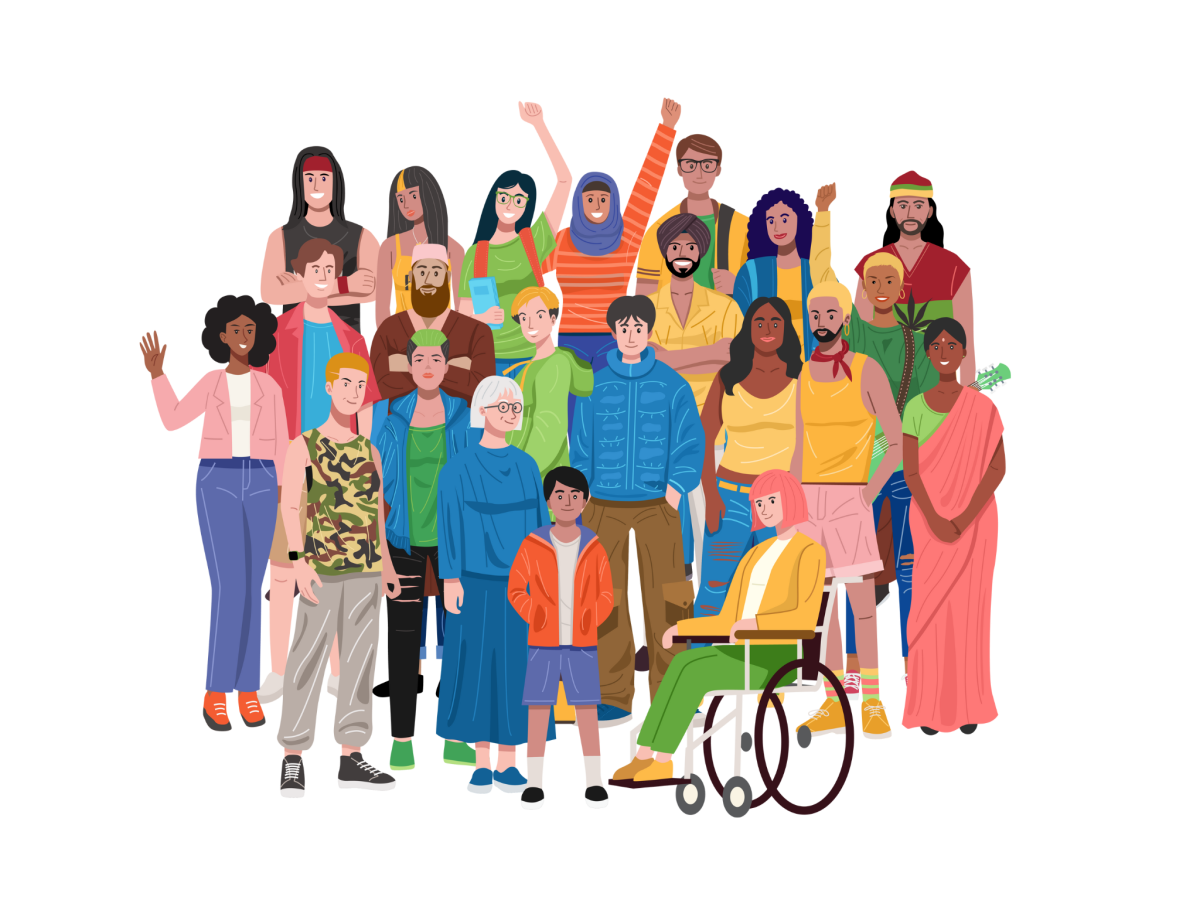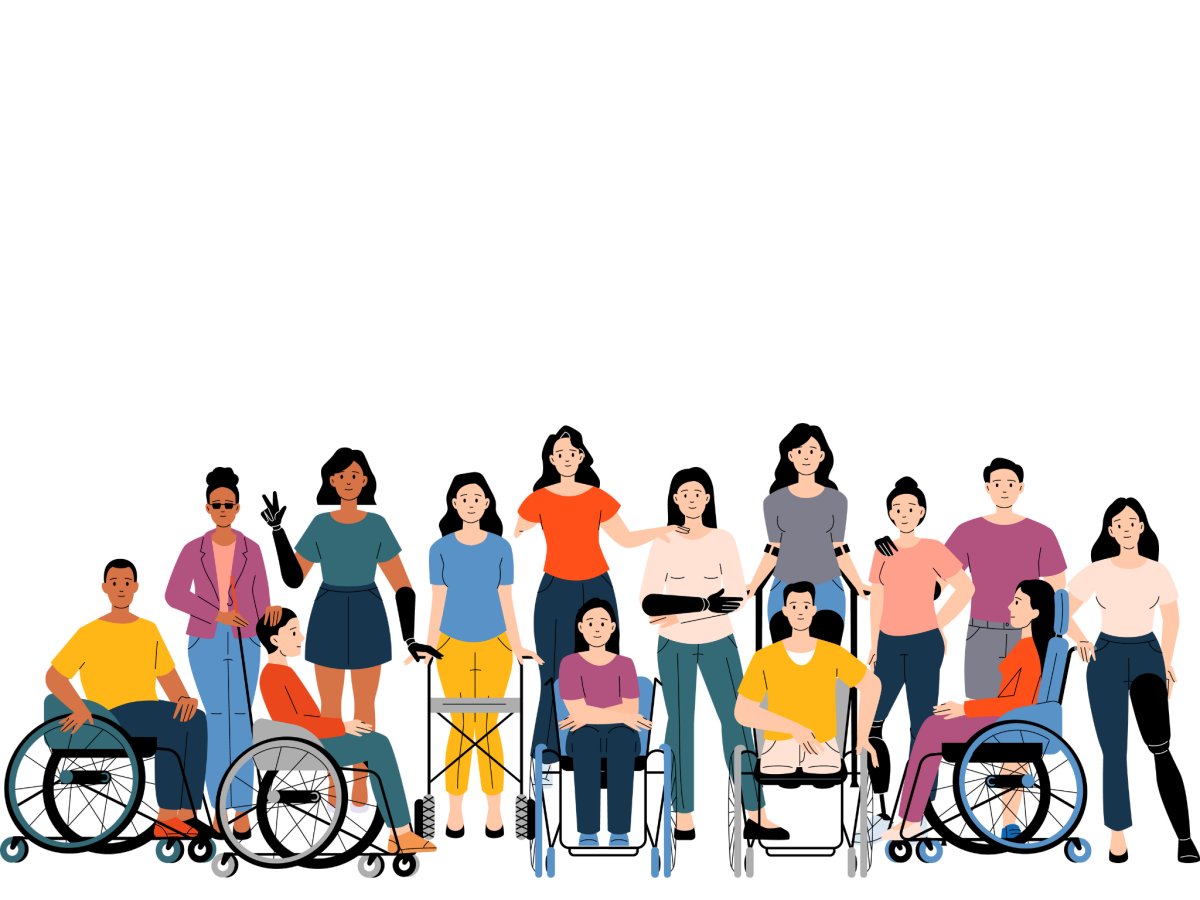Founded by Inclusive Employers, National Inclusion Week (NIW) is a week dedicated to celebrating inclusion and taking action to create inclusive workplaces. This year it takes place from 15 – 21 September.
The theme for National Inclusion Week 2025 is ‘Now Is The Time’: with recent backlash against inclusion and diversity, economic instability, and tightening budgets, this theme emphasises the importance of Equity, Diversity and Inclusion (EDI) work and the need to push forward. Organisations are encouraged to focus on practical steps that make inclusion sustainable and embedded within our workplaces and wider communities.
Here are some of the ways we are creating an inclusive workplace at Action Together, and some suggestions for where to start at your organisation.
Inclusivity at Action Together
At Action Together, we recognise that our strength comes from our diversity, so we are constantly working to be as inclusive as possible. Here are just some of the things we have done since last year’s National Inclusion Week:
- Strategy – this has been our first full year of working towards our organisational EDI Strategy, with progress being made towards all six of our Strategic Aims. Our teams are in the process of setting their actions for the upcoming 12 months to ensure we keep up this momentum.
- EmbRACE Diversity Group – our EmbRACE Diversity Group has continued to meet, raising issues and planning action to make Action Together a more inclusive and equitable workplace. This has included consulting on action plans to improve our emergency preparedness, increase diversity in our leadership teams, and provide employees with the resources they need to talk about equity and inclusion confidently.
- Workforce Wellbeing Group – our Workforce Wellbeing Group has continued to design and implement initiatives and events to improve the wellbeing of our staff members, including our annual Thank You Day, our new Employer Supported Volunteering Policy, and Mental Health First Aid training.
- Celebrating religious diversity through events – faith is an important part of many of our employees’ and members’ lives, and also a great way for people to connect through shared customs and traditions. We organise events throughout the calendar year to celebrate religious observances, creating opportunities for our teams to get together and connect with one another. So far this year we have held a staff iftar during Ramadan, and we are planning events for both Diwali and Christmas.
- Leadership – in our first full year as a Disability Confident Leader organisation, we have supported public, private, and VCFSE sector organisations to begin their Disability Confident journeys.
- Training – we all want to ‘get it right’ when it comes to inclusive practices, and we know that appropriate training supports our employees and our members with this. We have worked with some fantastic national organisations to provide Mental Health First Aid and Disability Awareness training for our staff, with more inclusion-focused training to come.
- Developing expertise and guidance – we want to make sure our employees are confident in their understanding of complex topics, so we have created guides around inclusive language, refugees and asylum seekers, and the implications of this year’s Equality Act ruling to help them feel secure in challenging misconceptions and supporting our members.
- Expressing solidarity – we know that global and national issues can impact our members and communities. We have released public statements confirming our solidarity with Palestinians living through genocide, with refugees, asylum seekers and those affected by racist and Islamophobic violence, and with the LGBT community, especially trans and non-binary people impacted by the recent Supreme Court judgment.

What can your organisation do?
If you want to be a more inclusive organisation but are struggling to know where to begin, these can be some useful starting points:
- Speak to your staff and volunteers – individuals in your organisation, especially those from underrepresented groups, may be able to give important insight into what you’re already doing well and where you may have room for improvement. Explain why you’re asking questions about inclusion, listen, and avoid becoming defensive if some of the feedback is challenging – remember that your staff team want your organisation to be an excellent place to work as much as you do!
- Collect and analyse data – knowing who is currently missing or underrepresented at your organisation, especially at a senior level, can help you to identify groups whose expertise and lived experience you may be missing out on. Remember that some people may not feel comfortable sharing personal information with their employer, so be clear about what you plan to do with the data and give people the option to opt out if they wish.
- Learn from experts – there are many excellent training providers with lived experience backgrounds in our local areas. They can help you to understand how to ensure that you are building a supportive and inclusive workplace. We also regularly run training sessions on a variety of topics – see our training calendar for more information.
- Speak to your development worker – our fantastic Community Development Workers can help point you in the right direction for advice and training.
- Take a look at online guides and resources – CIPD and ACAS are great places to start, but there are also many local organisations and individuals who share best practice based on personal experience.

Tips to feel confident talking about inclusion
Language changes all the time, and we know that this can feel intimidating, but here are some tips for being confident in conversations about inclusion.
- Use online resources to understand why some words are not used today. You can search online for ‘word + offensive’ if you’re thinking of using a particular term and you’re worried it might be outdated or harmful – there will usually be articles or web pages explaining why a particular term is no longer used and what the preferred term is.
- Mirror the language used by individuals to describe themselves. When speaking formally about their identity, people will often use the terms they prefer. However, remember that in informal settings people may use words which have been ‘reclaimed’ and should only be used within the community, so check as above if you’re unsure.
- Be honest and ask questions. If you tell somebody that you want to be respectful and use the language they’re comfortable with, most people will be happy to tell you how they would like to be described. Trust that individuals know themselves best, and if they tell you they don’t like a particular word, even if it’s used by other people in the same community, don’t use it for this person.
Key terms
Equity (and equality) – equity is giving people different resources according to their need. For example, not everybody in a hospital should be given the same treatment – they should be given the treatment that is most appropriate for them. Equality is everybody having the same outcome, so in our hospital example we would want everybody to be recover and be well after their treatment.
Diversity – diversity is a way of describing the differences in a group of people. A group with individuals from different genders, races, religions and lived experience is a diverse group. An individual cannot be ‘diverse’, because they only have one set of experiences etc. – their own.
Inclusion – inclusion/inclusivity is the active process of making everybody feel like they are valued and they belong.
Trans (transgender) – transgender refers to anybody whose sex doesn’t align with their gender. The opposite of transgender is cisgender, and this refers to people whose sex and gender do align (for example if you are a man who was born male, or a woman who was born female).
Underrepresented – a group is underrepresented if people from that group are less likely to be in positions of power or represented in the media compared to other groups.
